Perspectives is an opportunity for Fellows and others to share their ideas in short, accessible essays. IPE/BC Fellows hold a range of views and interests relative to public education.
The Urgent Need to Tackle Racism
by Noel Herron
Last August, the BC Office of the Human Rights Commissioner launched the first ever public inquiry into hate crimes in BC. In announcing this important step, a year-long thorough investigation, Commissioner Kasari Govender noted that, since early 2020, there has been a significant increase in reported hate-related incidents. “It is critical for all of us to be better prepared to prevent and respond to hate during global health, economic and social crises to protect our human rights during turbulent times,” stated Govender.
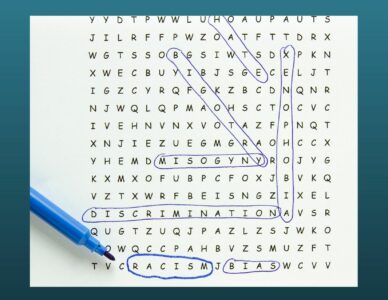 The 19 months of the pandemic in B.C. have witnessed almost weekly incidents and events that point to the surge of racism both at a local and a provincial level, some minor, others with wider implications for sectors such as health, policing, education, sports, and politics. This very serious issue affects not just BC but the entire country. Yet, it was deeply disturbing that it was largely ignored during the recent federal election campaign. This, while we bore witness to the traumatic discovery of hundreds of unmarked graves of First Nations children at residential school sites.
The 19 months of the pandemic in B.C. have witnessed almost weekly incidents and events that point to the surge of racism both at a local and a provincial level, some minor, others with wider implications for sectors such as health, policing, education, sports, and politics. This very serious issue affects not just BC but the entire country. Yet, it was deeply disturbing that it was largely ignored during the recent federal election campaign. This, while we bore witness to the traumatic discovery of hundreds of unmarked graves of First Nations children at residential school sites.
Provincially, BC has appointed Rachna Singh as Parliamentary Secretary for Anti-Racism Initiatives with the promise to introduce anti-racism legislation in the next session of the legislature. A public consultation is currently underway. Thinking of public education, that legislation will have to have considerable strength and impact to ensure that racism is tackled in a comprehensive and meaningful way across the province.
What steps have been taking place in education over the past year? On the opening day of the 2021/22 school year, the Vancouver School Board had an online anti-racism training session for all teachers and principals. It followed racist incidents that were brought to light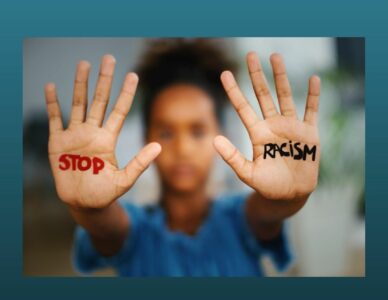 by students and parents who had the courage to speak out and use the BC human rights process. That’s one positive step; however, it took the five separate parties that are currently represented on the board a full year to agree to implement this long overdue initiative. There is so much more to be done.
by students and parents who had the courage to speak out and use the BC human rights process. That’s one positive step; however, it took the five separate parties that are currently represented on the board a full year to agree to implement this long overdue initiative. There is so much more to be done.
Last February, the BC School Trustees’ Association followed up on motions carried by the BCSTA Provincial Council the previous year and appealed to the provincial government to provide the additional support needed to implement systemic change in school districts across the province. Acknowledging that some steps had been taken, the BCSTA pressed for comprehensive plans to address the issue.
In August, we learned about a report, mandated by the BC Minister of Education, that found “clearly discriminatory and systemically racist” behaviours and practices in a B.C. school district and called for a province-wide review. This report on School District 57 provided a profile involving one school district. However, retired judge, currently academic director of the Residential School History and Dialogue Centre at the University of B.C, Mary Ellen Turpel-Lafond agreed that a deeper probe is needed, stating, “This report was very helpful, but it certainly struck me as a kind of tip-of-the-iceberg report.”
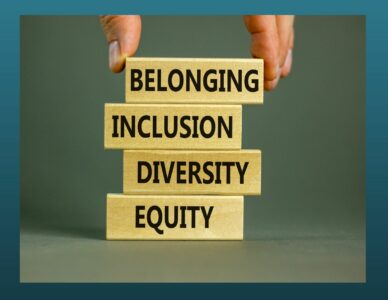 BC’s reckoning with racism is long overdue and we all have a role to play. The creation of a truly inclusive, just, respectful, and caring society needs urgent attention from all levels of government-local provincial and federal. Additionally, it is incumbent on each of us to speak out against racism and, in the context of our all-important public education system, insist that all schools and school districts are modeling the society we seek.
BC’s reckoning with racism is long overdue and we all have a role to play. The creation of a truly inclusive, just, respectful, and caring society needs urgent attention from all levels of government-local provincial and federal. Additionally, it is incumbent on each of us to speak out against racism and, in the context of our all-important public education system, insist that all schools and school districts are modeling the society we seek.
Noel Herron is a retired principal, former Vancouver school trustee and past member of the Vancouver School District Race Relations Committee. He has a long and highly respected career in public education and is well known for his deep commitment to the well-being of students in general and to the needs of marginalized and racialized children and youth, in particular. While principal, Noel served on the Vancouver School District Committee on Racial Justice; he expresses his gratitude to the many race relations consultants and anti-racism advocates he worked with and learned from throughout his career.
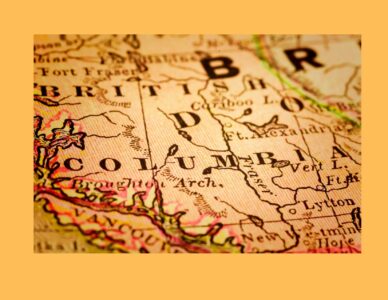 and community members who participated in the hearings. From a school library in Gibsons, to an auditorium in McBride, to a community hall in Haida Gwaii, to high school classrooms in Fort St John, and many places and spaces in between- each session was highly engaging and deeply meaningful.
and community members who participated in the hearings. From a school library in Gibsons, to an auditorium in McBride, to a community hall in Haida Gwaii, to high school classrooms in Fort St John, and many places and spaces in between- each session was highly engaging and deeply meaningful.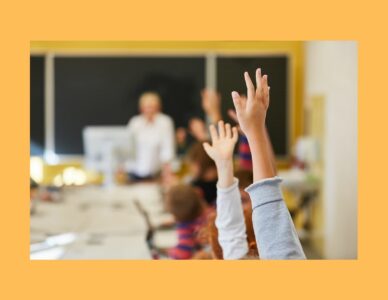 responsible life in a free and democratic society, to participate in a world which each generation will shape and build.”
responsible life in a free and democratic society, to participate in a world which each generation will shape and build.”
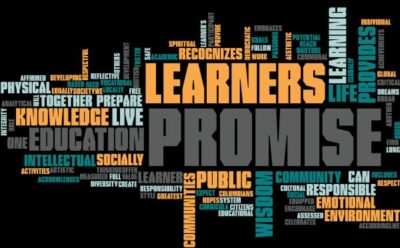 The BCTF, after a discussion and debate that was not without controversy, decided to fund the initiative. Many teachers were not convinced that their resources should be used in this way. Why, they asked, should teachers pay for a commission would be independent of the Federation? Still, the project was eventually enthusiastically approved.
The BCTF, after a discussion and debate that was not without controversy, decided to fund the initiative. Many teachers were not convinced that their resources should be used in this way. Why, they asked, should teachers pay for a commission would be independent of the Federation? Still, the project was eventually enthusiastically approved.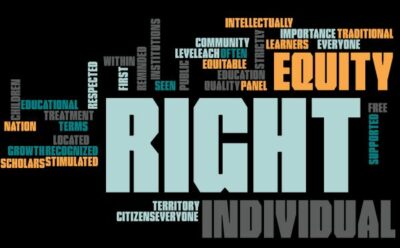 mandate of the Charter process. Rather, the panel determined to draw out the principles behind the pain. They decided to pose a number of questions to the participants in every hearing:
mandate of the Charter process. Rather, the panel determined to draw out the principles behind the pain. They decided to pose a number of questions to the participants in every hearing: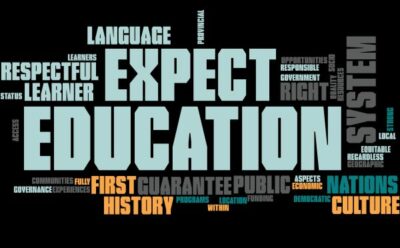
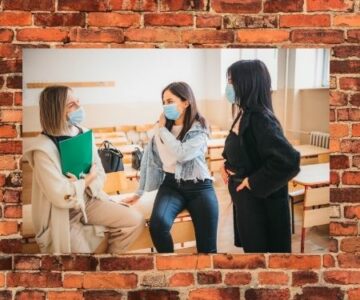 Looking back to last March, Bryn recalled worrying about whether the resilience of students, teachers and parents could sustain itself for the long road ahead. However, even with very difficult challenges, shared leadership and strength have grown, with everyone working together in support of students, families, and the community. “This embodies what public education is all about- that it’s for the common good,” said Bryn. His hope is that distributed leadership with connections to community continues to flourish, post COVID-19.
Looking back to last March, Bryn recalled worrying about whether the resilience of students, teachers and parents could sustain itself for the long road ahead. However, even with very difficult challenges, shared leadership and strength have grown, with everyone working together in support of students, families, and the community. “This embodies what public education is all about- that it’s for the common good,” said Bryn. His hope is that distributed leadership with connections to community continues to flourish, post COVID-19.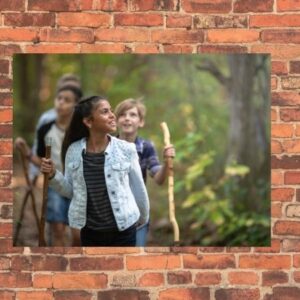 Jamie urged recognition of the Indigenous world view in schools, noting that Indigenous people are keepers of knowledge fundamental to the creation of a compassionate, harmonious society and to the planet’s very survival. She highlighted the need to recruit more Indigenous teachers and welcome Indigenous elders into classrooms, and expressed her concern that an over-emphasis on academics means that children are missing many of the basic life skills needed to survive and live in harmony with others. “We’re teaching kids to be scholars; we’re not teaching them to be community members,” she said.
Jamie urged recognition of the Indigenous world view in schools, noting that Indigenous people are keepers of knowledge fundamental to the creation of a compassionate, harmonious society and to the planet’s very survival. She highlighted the need to recruit more Indigenous teachers and welcome Indigenous elders into classrooms, and expressed her concern that an over-emphasis on academics means that children are missing many of the basic life skills needed to survive and live in harmony with others. “We’re teaching kids to be scholars; we’re not teaching them to be community members,” she said. “Every teacher sees the difficulty in it now and every parent sees the limitations,” said Julia. She noted that attendance at virtual meetings and workshops is high, but there is a passivity that comes with engaging online. “There is something about the physicality that leads to memorable professional development experiences and enhances the way we learn and make decisions together,” Julia observed.
“Every teacher sees the difficulty in it now and every parent sees the limitations,” said Julia. She noted that attendance at virtual meetings and workshops is high, but there is a passivity that comes with engaging online. “There is something about the physicality that leads to memorable professional development experiences and enhances the way we learn and make decisions together,” Julia observed.